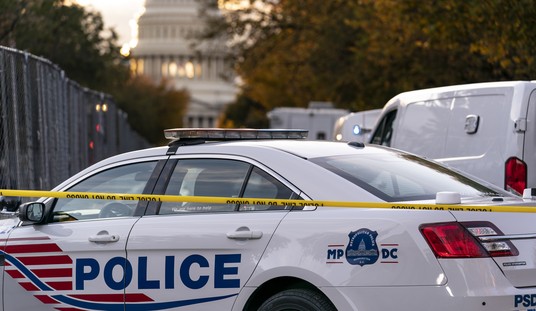The Washington Post has a worthwhile story today about civil asset forfeiture laws being abused to in Oklahoma by the police to seize money destined for a Christian school and an orphanage. The story involves a man named Eh Wah who the Post describes as, “a refugee from Burma who became a U.S. citizen more than a decade ago.”
Wah was managing a tour by a Christian music group called The Klo and Kweh music team (also from Burma) that was intended to raise money for a Christian school in Burma and an orphanage located in Thailand. Police in Oklahoma pulled him over for a broken tail light and then a drug-sniffing dog reacted when brought to the car. Police searched the car and found no drugs or drug paraphernalia but they did find $53,000 in cash. The Post breaks down where that came from:
There was the roughly $33,000 from ticket sales and donations, much of it earmarked for the religious college back in Burma, according to Eh Wah and the band members.
There was the $1,000 in cash donations to the orphanage in Thailand, small bills bundled in two or three dozen sealed envelopes with the orphanage’s name written on them.
There was $8,000 in cash from the band’s CD and souvenir sales. A $9,000 cash gift to one of the band’s members from his family and friends in Buffalo — cash that Eh Wah says he didn’t even know was in the blue and white gift bag he had been asked to hold. And $2,000 in cash for Eh Wah and the band’s incidental expenses on the trip: meals and tolls, for example.
But the police claimed Wah told inconsistent stories about where the money came from (English is not his first language) and arrested him. They seized the cash and under civil asset forfeiture law would be allowed to keep it even if Wah was never convicted with a crime. Indeed, the police could keep the money even if Wah was never charged with anything. As the Post points out “When it comes to civil forfeiture, you are guilty until proven innocent.” In Wah’s case he was eventually charged:
Muskogee County authorities eventually charged Eh Wah with a crime, five weeks after he was stopped. They issued a warrant for his arrest April 5, for the crime of “acquir[ing] proceeds from drug activity, a felony.” For probable cause, the authorities noted the positive alert from the drug dog, “inconsistent stories” and said Eh Wah was “unable to confirm the money was his.”
The Post notes that drug-sniffing dogs have a very high false positive rate. As for the possibility of Wah being mixed up in the drug trade, his friend tells the Post, “Eh Wah doesn’t even know how to smoke. Eh Wah doesn’t know how to drink beer.”
Fortunately, Eh Wah’s case has been taken up by a group called the Institute for Justice which is trying to get charges against him dropped and has filed suit demanding the return of the cash intended for the school and the orphanage. But this is far from the first time something like this has happened.
Last week, Nebraska eliminated civil forfeiture and a story about the new law noted some similar incidents:
Civil forfeiture has ensnared a wide swath of victims in Nebraska. A Peruvian pastor once had $14,000 seized during a traffic stop. Only after the local chapter of the ACLU intervened was he able to recover his cash. Last year, a federal appellate court upheld forfeiting more than $63,000 in savings from a decorated Air Force veteran, even though he was never charged with a crime.
Nebraska will now require a criminal conviction before any money can be seized by police. That’s a change in the law that should be replicated in Oklahoma and every states where this is still happening.








Join the conversation as a VIP Member